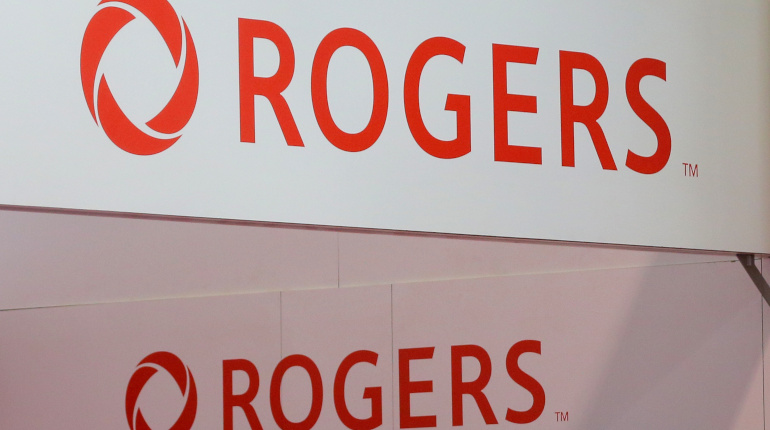“Keep your friends close, but your enemies even closer” goes the saying. In the case of the telecom giant, Rogers, it would appear that it’s your own family members who need to be the closely watched ones. Rogers ─ which currently has two duelling boards of directors, a stalled multibillion-dollar takeover, a feud among the company’s founding family, and court proceedings in B.C. ─ is providing enough drama for a potential Netflix series.
Interesting and unusual as this saga is turning out to be, one thing is certain – Rogers’ customers will continue to pay some of the highest prices in the world for using their cell phone services. A 2017 poll found that Rogers, along with their so-called competition of Bell, Telus and Shaw, belong to the industry with the worst reputation in the country, worse even than bankers or oil barons. The average cost of 1GB of mobile data here is $12.55, compared to a Western European average of $3.13. In addition, you’ll probably get overbilled, be made to listen to mind numbing muzak for hours while waiting for customer support or forced to listen to their marketing lies.
But it’s not just about pricing. Access is also an issue. This was brought out during the pandemic when enforced distance learning and inconsistent access to wireless internet became an even bigger barrier than usual to education. With libraries and cafés closed, students needed internet access at home in order to continue their education. Educators across the country quickly adjusted to remote learning, but no individual teacher can create a plan that works for students without access to the internet. In Philadelphia, school districts at one point even suggested (but never implemented) the city set up hotspots in parking lots, saying students could simply go to parking lots if they needed internet access for school and lacked Wi-Fi or housing. If a child’s caregiver cannot afford the wireless bill, that does not mean the child is undeserving of education. Under the capitalist system, the opportunity gap in education only widens during a crisis like this one.
Federally, telecommunications are overseen by the Canadian Radio-television and Telecommunications Commission. The telecom industry in Canada has among the world’s strictest foreign ownership rules. It was designed that way in the 1990s when the federal government enshrined in law strict rules about foreign ownership restrictions. At that time, telecom had become entwined with broadcasting, where foreign ownership rules were seen as necessary to protect Canada’s culture. Laudable as that may seem, the downside was the opportunity that is given with any protectionist measure ─ a lack of competition accompanied by high prices.
Mega profits being made in telecom
A CBC article posed the question: Exactly how profitable are Canada’s cellphone carriers? “The short answer: very. The longer answer: They are the most profitable in the developed world.”
Ninety-five percent of the Canadian wireless market belongs to “the big three:” Rogers, Bell and Telus and they were the most profitable of those in 23 developed countries surveyed in a 2008 report by Merrill Lynch. Canada’s top three carriers had a combined profit margin of 45.9 percent, well above the developed world’s average of 33.1 percent. In 2017, their profits totalled $7.49 billion, and their profit margins reached a comfortable 46.2 percent. Those profit margins will increase if and when the Shaw-Rogers merger comes to fruition and monopolization is further consolidated.
As socialists, we are not interested in promoting a protected market. Neither do we push for a “free” market with unlimited competition that could bring the likes of AT&T and Verizon to Canada from the US. In May 2021 , the left-wing online magazine, The Breach, published an article titled, “Why not nationalize telecoms?” with the sub-heading, “Canada’s telcos are the most-hated sector for a reason. It’s time to take back our internet and phone networks.” You’d be forgiven for thinking that Canadian telecoms are exclusively about Rogers, Bell and Telus but in the province of Saskatchewan, there is an example of a third way ─ public ownership.
Saskatchewan shows the way
The Breach writes: “The Big Three mobile providers (Rogers, Bell, and Telus) claim that high prices for mobile phone services are an inevitable consequence of Canada’s immense geography and sparse population, rather than due to a lack of competition. The notion is spectacularly disproven by Saskatchewan, the province with the lowest population density ─ and the lowest rates for cellphone services. The province’s mobile phone users get lower prices and more data for their mobile phones than in other provinces because of the better service provided by SaskTel, the last provincially owned telecom company left standing in Canada after decades of privatization.
“Wireless plans in Saskatchewan are up to $70 cheaper than their equivalents in Ontario, Alberta and British Columbia, thanks to SaskTel. Competition from SaskTel has forced the Big Three to lower rates for their Saskatchewan customers, by 40 percent for some plans relative to other provinces. Prices are so low, in fact, that there is a thriving black market of Ontarians clandestinely obtaining Prairie mobile phone plans. And only SaskTel (along with the recently privatized telco in Manitoba) offers unlimited data plans. Even industry consultants hostile to the notion of a publicly-owned provider admit that the best wireless rates in the country are thanks to SaskTel. SaskTel has enjoyed tremendous commercial success, taking a 67 percent share of the wireless market and regularly returning tens of millions of dollars in dividends to the provincial treasury.
“SaskTel has invested heavily in rural infrastructure. While Bell, Rogers and Telus have limited their infrastructure spending to Regina and Saskatoon, SaskTel has built cell towers throughout the province. The crown corporation also boasts the lowest number of complaints per subscriber among wireless carriers and has won top marks for customer service. All this, while paying its CEO and board of directors one-tenth of what MTS (Manitoba’s privatized telco which is of similar size and was sold off in 1996) pays its corporate leadership. Taking SaskTel national, as UNIFOR’s David Coles proposed in 2014, could be an interesting way of challenging the hold of the Big Three over wireless.”
Equity
The current exorbitant prices that the Big Three charge have been accompanied by a lack of infrastructure investment in rural, northern and First Nations communities and prices are often more expensive there. The COVID pandemic has shown internet and phone to be essential services and the long-time inequitable provision has accentuated the gaps in service experienced by these groups. Public ownership would give the high-quality services they’ve so long been denied because they were unprofitable to the private monopolies. Instead, the Canadian government is giving money to private companies to bribe them to expand access and increase speed of the internet to Canadians.
The services on offer to Canadians could be consolidated into a simpler and less expensive suite of services and new stores could be brought together, as has been proposed for public banking, under the umbrella of Canada Post, which would also ensure service is easily accessible in rural parts of the country.
Don’t forget the workers
There are 638,000 workers in Canada’s telecom industry. Over the last few years many positions have been lost to outsourcing. At the same time there is pressure on employees in customer service to turn every call into an “upgraded,” more expensive add-on. It wouldn’t be hard to staff the new public entity, given that the telecom companies already have large workforces of skilled people who could be transferred into new roles, with the emphasis on reducing the sales side and increasing the technical/service side.
Who knows how long the saga of the Rogers family and board will last and what the outcome will be? Whichever faction comes out on top, it’s fair to say that, on a capitalist basis, Rogers’ customers and workers will continue to be screwed.
Socialist Alternative says:
- End the throttling of internet speeds and bandwidth.
- Ensure privacy, security, and net neutrality (the principle that internet service providers should enable access to all content and applications regardless of the source, and without favouring or blocking particular products or websites).
- Create union jobs through an expansion of infrastructure to all areas.
- Take the profit motive out of our utilities! Take the electricity companies, water companies, and phone and internet companies into public ownership to provide high quality service.



